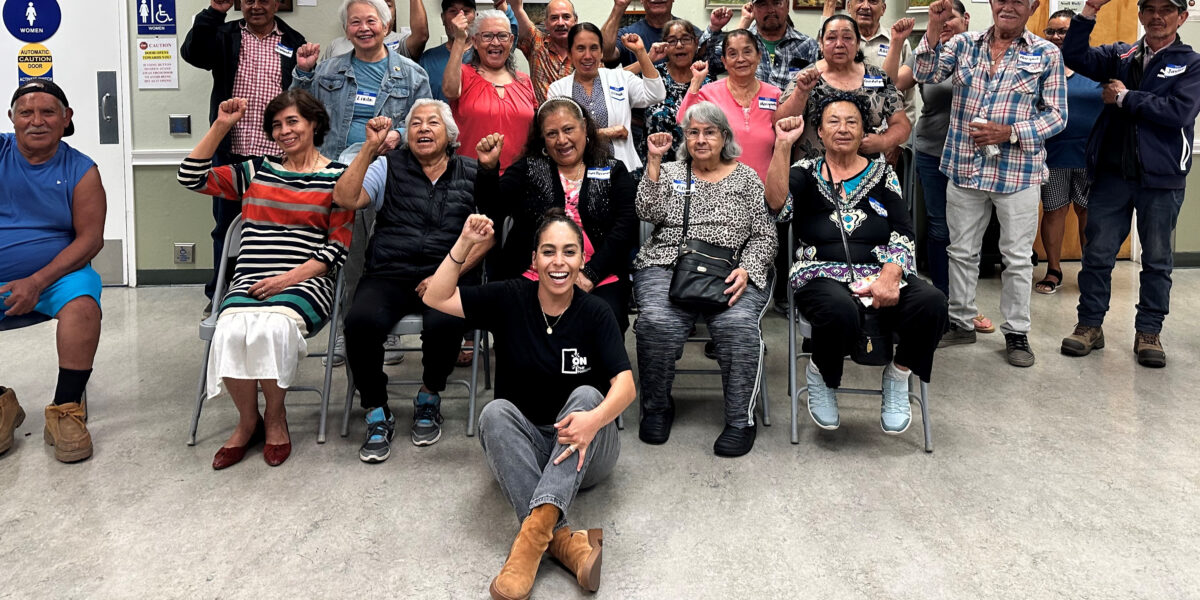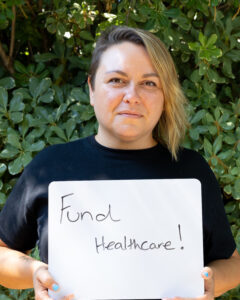

Good News About the Change in the Public Charge Rule
U.S. Citizenship and Immigration Services have reinstated previously-suspended rights for immigrants and their families.
When Diana, an agricultural worker who lives in Healdsburg, learned she was pregnant, fear and anxiety about the impacts of the 2019 Public Charge rule on her immigration status prevented her from obtaining vital prenatal services for the first six months.
At our recent community listening session, Sue Labbe, Chief Medical Officer at Alliance Medical Center, said this story was all too common: hundreds of patients in their practice expressed similar fears about the ramifications of Public Charge. “Public Charge fears had a huge impact on our families,” Labbe said. “It meant many people deferred their medical care; in some cases this resulted in preventable ER visits, hospitalizations, and worse.”
Finally, mercifully, the Public Charge crisis that affected millions of immigrants across America over the last two years has come to an end.
Back in 2019, the Department of Homeland Security dramatically expanded the public charge definition enabling the agency to make green card and other visa applicants “inadmissible” for being “more likely than not” to use certain public benefits at any point in the future. As a result of the change in definition, millions of households in which any member was either undocumented or in the immigration process stopped obtaining medical care for their entire families out of concern for being arrested or, worse, deported.
This year, under the new administration, the DHS determined that “continuing to defend the 2019 Public Charge rule, pursuant to which the lawful receipt of Medicaid, public housing, or Supplemental Nutrition Assistance Program (SNAP) could lead to a finding of inadmissibility, was neither in the public interest nor an efficient use of limited government resources.”
In other words, U.S. Citizenship and Immigration Services has stopped applying this expanded public charge rule, reinstating rights for immigrants and their families that had been suspended.

The Healthcare Foundation and partners are working with local agencies to communicate that public charge rules have changed and it’s safe for people to return to their healthcare providers again.
Alejandra Torres, assistant director for immigration programs at Catholic Charities Santa Rosa, said her organization has helped nearly 600 individuals so far, and continues to sponsor advocacy work and awareness-raising campaigns designed to reacquaint North County residents with all the services they can receive.
“The public charge rule created a lot of damage in the immigrant community,” she said in a Zoom interview earlier this month. “In the end it made our community a lot poorer and hungrier.”
Looking forward, the Healthcare Foundation and many other partner organizations will continue to work toward raising awareness of the changes to the rule to get more members of the community comfortable obtaining medical and other services to which they have a legal right. Catholic Charities has set up a webpage with information for immigrants, and is hosting free classes that cover this information.
The Healthcare Foundation will continue its work to support partners such as Corazon Healdsburg, La Familia Sana, Latino Service Providers and others to help spread the word about this important change that benefits our immigrant community.

Related News + Stories
Invest in Our Community
Your support is vital to our collective vision of eliminating health inequities in northern Sonoma County.
Donate



